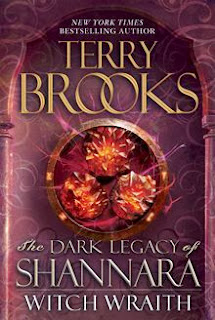The biggest thing I kept
thinking while reading the trilogy was how hard the plot was to figure
out. Brooks set up certain things in a
way that made me think he was going down familiar paths. For instance I was sure finding the missing
Elfstones was going to be critical to defeating the Demons. But in the end, it
was rather inconsequential. Which begs
the question of why Allanon thought the quest was so important to
undertake. I’m sure Brooks has a reason
why it was so important. Perhaps because
it was the only time the Elfstones could be retrieved, it was important to get
them now. But why was it important to
get them? And was retrieving the crimson
stones enough? It seems like there must
be purpose in all of this. It also seems
that the demons and the forbidding are going to be important in the future.
I also enjoyed the philosophical
quandary of the demons all being imprisoned due to their race and not their
individual deeds. We have seen a lot of
evil humans and elves and other races in the four lands, and we have now seen
that some of the demons, like Tesla, are not totally evil. Therefore, shouldn’t there be a way to free
demons who don’t do bad things?
The final thing I’ll discuss
today is the return of the Ilse Witch.
She didn’t really accomplish much to stop the demon except for defeating
their leader. But he would have been
stopped by the reestablishment of the forbidding anyway. But now he’s not inside the forbidding
planning revenge. The quest to free Grianne
was about as useless as the quest for the missing elfstones. And I was surprised in the final use of the
magic ring.
Terry Brooks is my all-time
favorite author, and this series shows he’s getting better and better! I await his next creation with great
anticipation!



No comments:
Post a Comment